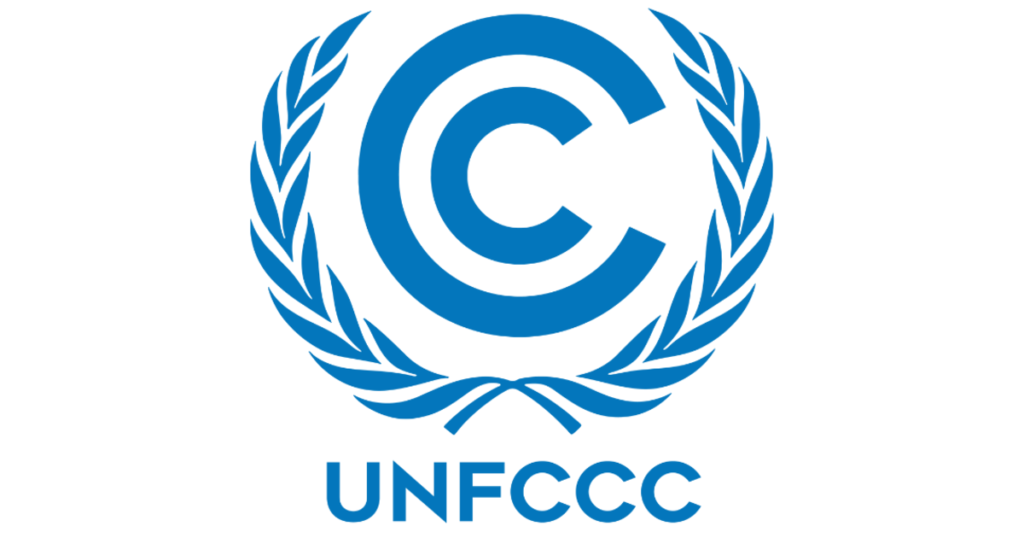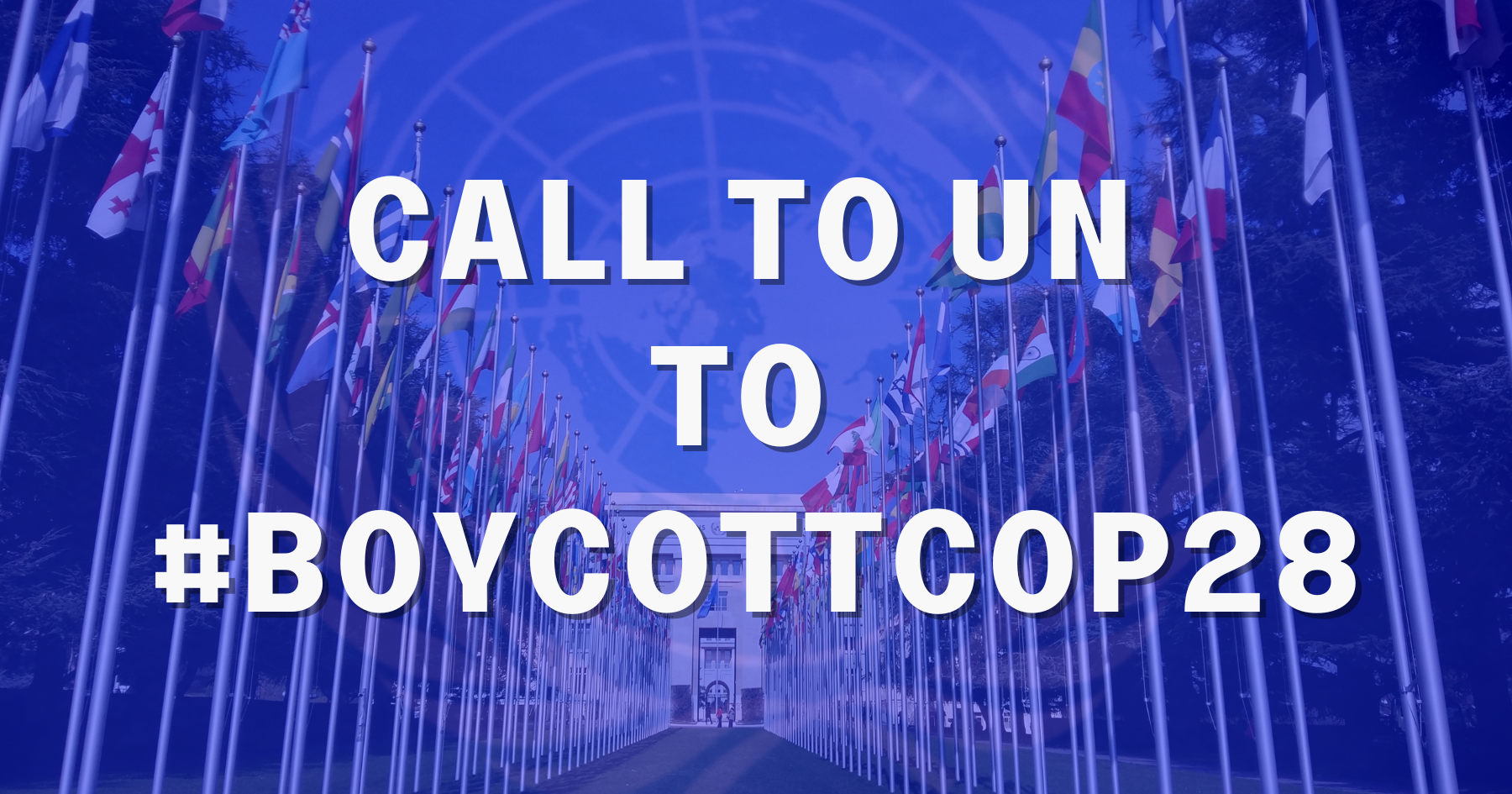The United Arab Emirates (UAE) is set to host the 28th Conference of the Parties (COP28) to the United Nations Framework Convention on Climate Change (UNFCCC) in November 2023. However, recent concerns about the UAE’s ability to host a successful and meaningful climate conference demands in itself a calls for UN member states to join boycott COP28 campaign.
This is due to the UAE’s significant violations of the UN Member States Charter, UNFCCC and Paris Agreement, including its high greenhouse gas emissions, lack of ambition in setting emissions reduction targets, failure to support technology transfer, and questionable human rights record. In this press release, we at Boycottcop28 will explore these violations in detail and argue that a boycott of COP28 is necessary to uphold the objectives of the UNFCCC and demonstrate a commitment to combatting climate change.
The Scope of UNFCCC

The United Nations Framework Convention on Climate Change (UNFCCC) is an international treaty adopted in 1992. The treaty aims to stabilize greenhouse gas concentrations in the atmosphere at a level that will prevent dangerous human interference with the climate system. The treaty has been ratified by 197 parties, including the United Arab Emirates (UAE).
The UAE is scheduled to host the 28th Conference of the Parties (COP28) to the UNFCCC in November 2023. However, recent developments have raised concerns about the UAE’s ability to host a successful and meaningful climate conference that in return boiled down to COP28 Controversy. As such, some are calling for UN member states to boycott the event.
Reasons to Boycott UAE COP28
There are several reasons why member states should boycott the UAE COP28, based on the UN Member States Charter and UNFCCC.
Article 2 of the UNFCCC
Firstly, the UAE is in violation of Article 2 of the UNFCCC, which states:
“The ultimate objective of this Convention […] is to achieve […] stabilization of greenhouse gas concentrations in the atmosphere at a level that would prevent dangerous anthropogenic interference with the climate system”
The UAE is one of the largest per capita emitters of greenhouse gases in the world, with a carbon footprint that is roughly three times the global average. This makes it difficult for the UAE to credibly lead efforts to combat climate change and achieve the objectives of the UNFCCC.
Article 4 of the UNFCCC
Secondly, the UAE is in violation of Article 4 of the UNFCCC, which requires parties to develop and communicate national policies and measures to mitigate greenhouse gas emissions.
“The developed country Parties and other developed Parties included in Annex II shall also assist the developing country Parties that are particularly vulnerable to the adverse effects of climate change in meeting costs of adaptation to those adverse effects.”
The UAE has made some progress in this area, but it still relies heavily on fossil fuels for energy and has been criticized for its lack of ambition in setting emissions reduction targets. As such, the UAE is not doing enough to meet its obligations under the UNFCCC.
Article 12 of the UNFCCC
Thirdly, the UAE is in violation of Article 12 of the UNFCCC, which calls for parties to cooperate in the development and transfer of technology to mitigate and adapt to climate change.
“Parties shall cooperate in taking measures, as appropriate, to enhance climate change education, training, public awareness, public participation and public access to information, recognizing the importance of these steps with respect to enhancing actions under this Agreement.”
The UAE is one of the wealthiest countries in the world and has the resources to invest in clean energy technologies and support technology transfer to other countries. However, the UAE has not demonstrated a strong commitment to this goal and has been criticized for its lack of support for international climate finance initiatives. Rather, UAE’s COP28 ethical finance are highly unsustainable and has nothing to do with climate friendly investment policies.
UAE’s Human Rights Violations
Last but not least, the UAE’s human rights record raises concerns about its ability to host a successful and inclusive climate conference. The UAE has been criticized for its treatment of migrant workers, who make up a significant portion of the country’s population. These workers often face exploitation, abuse, and poor living conditions. The UAE has also been criticized for its restrictions on freedom of speech and association, which could limit the ability of civil society groups to participate in debate on COP28 Agenda and negotiations.
Requesting UN Members to Not Participate
Given these concerns, it is clear that member states should boycott the COP28 UAE. The UNFCCC is a critical tool for addressing the Global Warming and Climate crisis, and it is essential that parties take their obligations under the treaty seriously. By boycotting the conference, member states can send a strong message to the UAE that it needs to do more to address climate change and uphold human rights.






